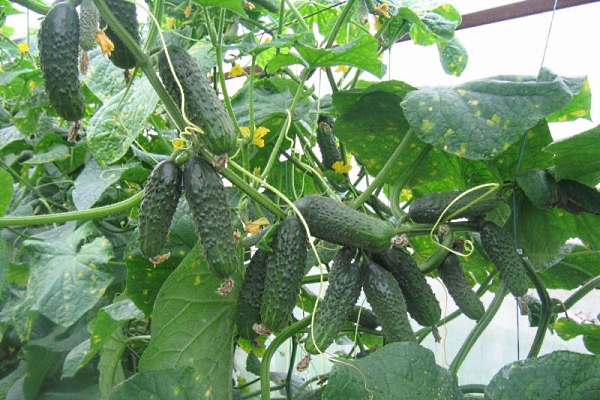Most people in our country The most popular vegetable crop are cucumbers.. Such demand and popularity of the culture constantly encourages breeders to invent innovative varietal varieties that are becoming more and more refined. After all, a large selection of such vegetable varieties provokes ever greater demands on the fruits of consumers. Especially love from vegetable growers and consumers won small and neat cucumbers variety Ecolewhich perfectly are suitable not only for the fresh use, but also for winter salting.
Table of contents
Description and characteristics of the variety
This variety variety maturing is mid-season. Crop begin to collect 45 days after planting seeds.
Culture does not require pollination. The plant is compact, in one sinus can form from 3 to 5 fruits.
According to the description, the fruits are hilly rich in green color, in sizes that do not exceed 7 cm. Fruits can be safely called mini gherkins.
Small cucumbers look very nice in jars rolled up for the winter and do not lose their excellent taste properties, both fresh and processed.
The pulp of the fruit is very dense and resistant to cracking. During heat treatment, they retain their density without forming voids inside. This is a very valuable quality, which comes to mind hostesses, harvesting winter salting.
Productivity varieties incredibly high. With good care from one square meter to 17-18 kg of ripe juicy fruits are harvested.

If you prefer to collect pickles, then in this case, the yield will be at least 8 kg per square meter.
Genetically, there is no bitterness in the fruit. The breeder also managed to achieve high resistance to such common diseases as downy mildew, cladosporia, and cucumber mosaic.
Harvest is best collected when the fruits reach 5-7 cm. In overgrown form, vegetables lose their taste.
Advantages and disadvantages of Ecole cucumber
This type has many advantages:
- High yield.
- Short growing season.
- Long fruiting.
- Excellent presentation of the fruit.
- Universality of fruit growing.
- Versatile use of vegetables.
- High resistance to diseases.
- Long shelf life.
- Excellent transportable features.
- Thin skin and lack of bitterness in the fruit.
- Resistance to cracking and voids.
- Drought resistance and cold resistance.
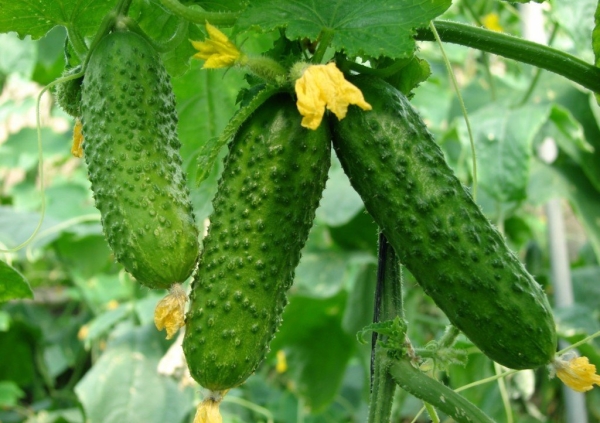
Planting and growing
This type of cucumber, like most of these crops, loves loose soil with good breathable abilities.
The plant also needs constant feeding, on which the yield of a variety directly depends.
The soil on which the plant is planned to be planted should be moderately loamy. To further float the ground and make it breathable, you can mix the soil with rotted sawdust.
You can grow a plant in two ways: seed and seedling. Both methods promise excellent yields, just a seedling method will help to get ripe fruits two weeks earlier.
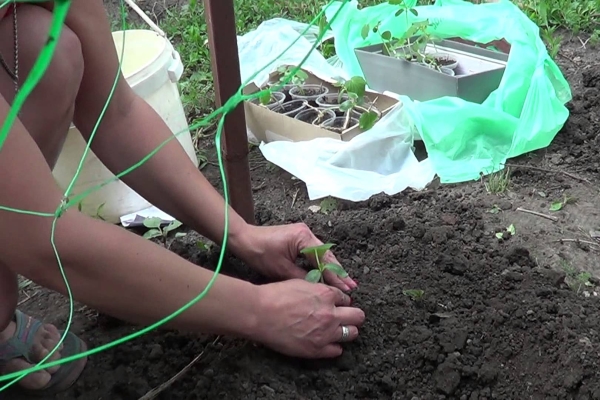
If you choose a seedling method of planting cucumbers, the seeds should be planted immediately in separate cups, since cucumber seedlings are usually weak and vulnerable and very poorly tolerated pick.
No matter what kind of cultivation you choose, obligatory is a garter plant. To do this, support or mesh.
3-4 plants are planted on one square meter. Seeds are deepened by no more than 3 cm and gently sprinkled with fluffy soil.
Seedlings are planted in the ground in the phase of 3-5 true leaves.
Seeds also have specific requirements.. It is best to buy ready-made seeds: glazed seeds.
They are already disinfected and treated with growth promoters. But such seeds are much more expensive than usual.
Plant seeds in open ground need, waiting for the complete retreat of night frosts. The soil should be heated to 15 degrees.
Typically, this temperature of the soil is reached when the mark on the thermometer rises to 22 degrees during the day, and 18 degrees at night.
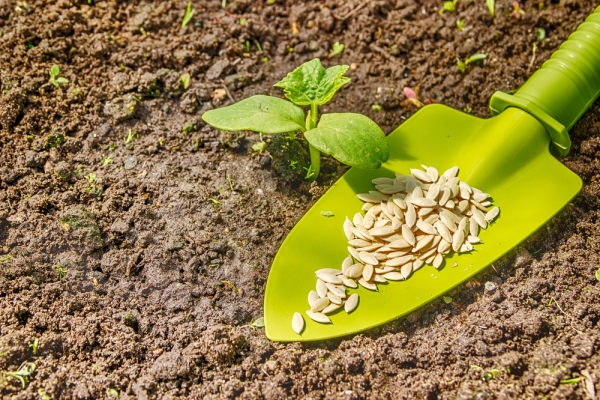
Care: watering, feeding
Further care of the plant consists of timely watering, fertilizer, loosening the soil, cleaning the weeds.
Water the plant must be regularly in the evening otstoyannoy warm water. But we can not allow excessive stagnation of water through the bushes, as this is fraught with rotting roots.
Watering is needed under the root. You can not irrigate the whole plant.
You can use the mineral fertilizers and nitrogen and potash. Fertilizing culture is intermittent in 2-3 weeks.
It is strictly forbidden to fertilize cucumbers with chlorine-containing preparations.
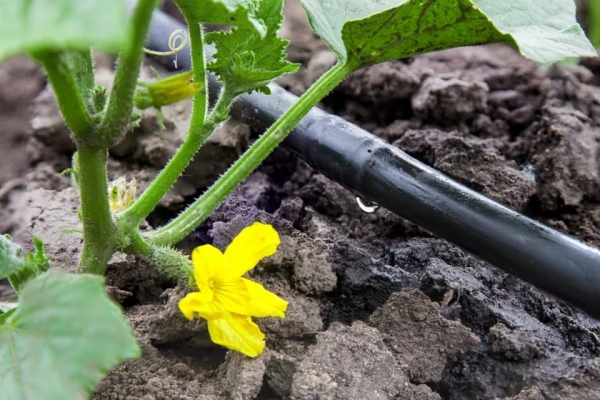
This type is very unpretentious in the care and, observing the above recommendations, you will provide yourself and your loved ones with an excellent harvest of small and neat fruits of excellent quality, which perfectly suit your taste, both fresh and canned.
